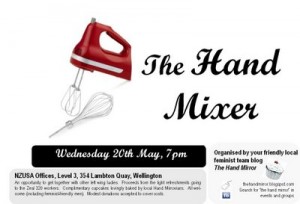One of the right’s responses to the Hikoi yesterday has been to complain about the presence of children on the march which disingenuous comments like “Why are there school children there?”. One could criticise these comments for relying on barely hidden stereotypes about MÄori, or for gross hypocrisy given the “family values” movements “family friendly” week day marches, but anyhow … what I actually want to talk about is why it is important that children are politically active.
As a child I attended many demonstrations, protests and marches: some at the suggestion of my parents, some off my own bat. I remember, as a 14 year old, asking my parents to write me a note for school so I could attend a rally at parliament in support of the Homosexual Law Reform Bill; I attended in school uniform with no school friends or family members. I also remember being in Parliament the night it was passed  and realising that we had done it – I was a very very small part of that “we”, but  I was a part of that “we”. I grew into a politically engaged young adult, and now adult. I know that one can make a difference, I know that my voice matters and that I can make it heard.
That is an amazing thing to know, and that is at the heart of democracy – knowing that our opinions are respected, and that raising our voices is worthwhile.
I hope that, when Key and Hide back down, every child on that march is told “you did that, together we made that difference”, I hope that when they get old enough to vote they will vote in the seats they created, I hope that when they see something wrong in the future they say “I know I can do something about that”.
Raising democratic children is about way more than school, it is about raising children who know they have power and know how to exercise it.


